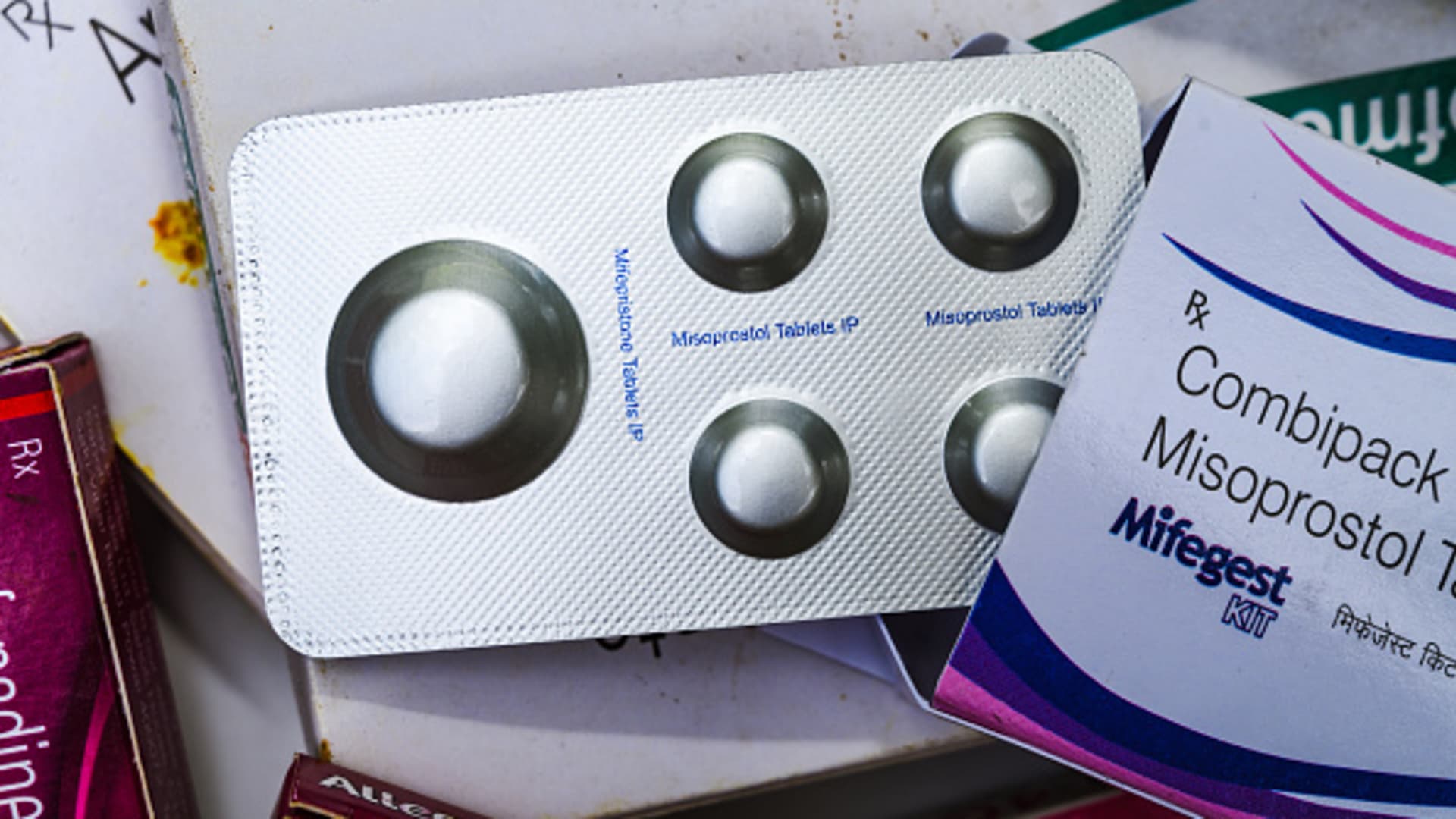Drug company Danco Laboratories on Friday asked the Supreme Court to review the case challenging the legality of the abortion pill mifepristone.
Danco’s request comes in response to a ruling by the U.S. Court of Appeals for the Fifth Circuit that would impose major restrictions on how the medication is used and distributed to patients.
Danco, which distributes the abortion pill, wants the Supreme Court to reverse the lower court ruling. The drug company said the case is of “indisputable importance” to women’s health as well as the pharmaceutical industry.
“For the women and teenage girls, health care providers, and States that depend on FDA’s actions to ensure safe and effective reproductive health care is available, this case matters tremendously,” Danco’s attorneys wrote in their filing.
“And for the pharmaceutical and biotechnology industry, permitting judicial second-guessing of FDA’s scientific evaluations of data will have a wildly destabilizing effect,” the attorneys wrote.
Danco’s request for the Supreme Court to take up the case comes nearly 15 months after the court’s conservative majority overturned Roe v. Wade, the landmark 1973 decision that protected abortion as a constitutional right. More than a dozen states have banned abortion in the wake of that ruling.
The Supreme Court’s new term starts next month. Four justices have to agree to take up the abortion pill case. The U.S. Department of Justice is also expected to ask the high court to review the case.
Download Danco Laboratories’ filing here.
The appeals court ruling is on hold until the Supreme Court makes a decision about the case. The high court, in April, pressed pause on lower court decisions as litigation about the pill proceeds in response to a request from the Biden administration.
A three-judge panel at the Fifth Circuit ruled that decisions the U.S. Food and Drug Administration took in recent years to make mifepristone more accessible to women failed to address safety concerns.
Should the Supreme Court take the case and uphold the appeals court decision, mifepristone will remain on the market in the U.S., but patients will face more barriers to accessing the medication.
If the high court declines to take the case, the appeals court restrictions will go into effect.
Mifepristone, used in combination with another drug called misoprostol, is the most common method to terminate a pregnancy in the U.S.
The appeals court order would end mail delivery of mifepristone and prescriptions via telemedicine appointments. Women would have to see a doctor in person to get a prescription and go to three follow-up visits as they take the course of medication.
The ruling also shortens the time when women can take mifepristone to seven weeks into their pregnancy, down from 10 weeks currently.
The litigation against mifepristone began last November when a group of physicians who oppose abortion called the Alliance for Hippocratic Medicine sued to overturn the FDA’s original approval of the pill, which dates back more than 20 years.
U.S. Judge Matthew Kacsmaryk of the U.S. District Court for the Northern District of Texas issued a sweeping order in April that suspended the FDA approval of mifepristone.
The appeals court dialed back Kacsmaryk’s order and kept the original FDA approval in place as well as the agency’s authorization of a generic form of the pill.
